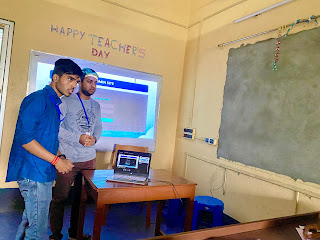SEMESTER 1.
CMSACOR01T: Computer Fundamentals and programming with C
Overview of C (5 Lectures)
History, Basic Structure,
Algorithms,
Structured programming constructs.
Character sets,
Tokens,
Keywords,
Constants,
Variables, Data Types,
Declaration of storage classes.
Operators, Expressions and Preprocessor (8 Lectures)
Arithmetic,
Relational,
Logical and Assignment;
Increment and Decrement
and Conditional,
Bitwise,
Special operator,
Operator Precedence and Associativity;
Arithmetic Expressions,
Evaluation of expression,
type casting.
Comments,
Input and output operations.
Understanding the Preprocessor Directives
(#include, #define, #error, #if, #else, #elif, #endif, #ifdef, #ifndef and #undef),
Macros
Decision and Loop Control Structure (7 Lectures)
If-else statements,
Nested if-else, switch,
Conditional operator.
While,
do-While,
for loop,
break statements,
continue statements,
goto statements.
Functions and Arrays (7 Lectures)
Utility of functions,
Call by Value, Call by Reference,
Functions returning value,
Void functions,
Inline Functions,
Return data type of functions,
Functions parameters,
Differentiating between Declaration and Definition of Functions,
Command Line Arguments/Parameters in Functions,
Functions with variable number of Arguments.
Creating and Using One Dimensional Arrays (Declaring and Defining an Array,
Initializing an Array, Accessing individual elements in an Array,
Manipulating array elements using loops),
Use Various types of arrays (integer, float and character arrays / Strings)
Two-dimensional Arrays (Declaring, Defining and Initializing Two Dimensional Array, Working with Rows and Columns),
Introduction to Multi-dimensional arrays,
return statement,
return values and their types,
String handling with arrays,
String handling functions,
recursion
Pointers (6 Lectures)
Definition and initialization,
Pointer arithmetic,
Pointers and arrays,
String functions and manipulation,
Dynamic storage allocation.
User defined Datatypes and Memory Allocation (6 Lectures)
Enumerated datatypes,
Structures.
Structure arrays,
Pointers to Functions and Structures,
Unions.
Differentiating between static and dynamic memory allocation,
use of malloc, calloc and free functions,
use of new and delete operators,
storage of variables in static and dynamic memory allocation
File Access (6 Lectures)
Opening and closing a file
(use of fstream header file, ifstream, ofstream),
Reading and writing Text Files, Using put(), get(), read() and write() functions,
Random access in files














